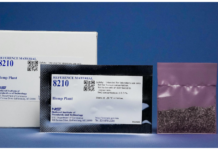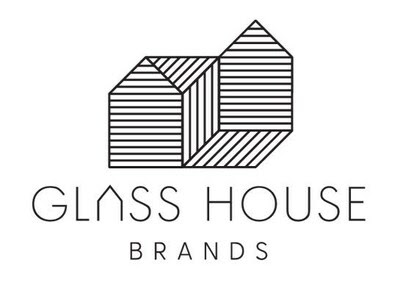LONG BEACH, Calif. and TORONTO – Glass House Brands Inc., one of the fastest-growing, vertically integrated cannabis companies in the U.S., today reported preliminary financial results for the fourth quarter and year ended December 31, 2023.
Fourth Quarter 2023 Highlights
(Unaudited results, unless otherwise stated, all results and dollar references are in U.S. dollars)
- Net Sales of $40.4 million, an increase of 35% from $29.9 million in Q4 2022 and down 16% sequentially from $48.2 million in Q3 2023;
- Gross Profit was $18.0 million, compared to $9.2 million in Q4 2022 and $26.0 million in Q3 2023;
- Gross Margin was 45%, compared to 31% in Q4 2022 and 54% in Q3 2023;
- Adjusted EBITDA was $3.8 million, our fourth consecutive quarter of positive EBITDA, compared to $(3.4) million in Q4 2022 and $10.7 million in Q3 2023.
- Fiscal year 2023 Adjusted EBITDA reached $24.5 million, compared to $(22.3) million in the same period last year.
- Operating Cash Flow was $1.4 million, compared to negative $9.3 million in Q4 2022 and $9.1 million in Q3 2023.
- Fiscal year 2023 Operating Cash Flow reached $23.2 million, compared to $(40.8) million in the same period last year.
- Cost per Equivalent Dry Pound of Production was $121 a decrease of 5% compared to the same period last year and up 2% sequentially versus Q3 2023;
- Equivalent Dry Pound Production2 was 103,500 pounds, up 37% year-over-year;
- Cash balance was $32.5 million at year-end, up 130% versus $14.1 million at the end of last year.
In its press release dated March 5, 2024, the Company announced its intent to restate and reissue its financial statements for the fiscal years ended December 31,
2021 and 2022 and the interim period ended March 31, 2023 and any corresponding management’s discussion and analyses (collectively, the “Restated Documents”). For further information regarding these restatements, please see the Company’s press release dated
March 5, 2024, available here.
These preliminary and unaudited financial results for the fourth quarter and year ended December 31, 2023 reflect the anticipated impact of these restatements. It
is expected that the Restated Documents and the 2023 audited annual financial statements will be filed by April 1, 2024. The results announced today remain preliminary and could change as a result of additional work performed in connection with the preparation
of such Restated Documents. All adjustments are subject to change until the Restated Documents are approved by the Company’s Audit Committee and Board of Directors and filed on SEDAR+.
Management Commentary
“2023 was a year of remarkable growth for Glass House Brands, during which revenue increased by 89% to a record $160.8 million while Adjusted EBITDA reached $24.5
million and operating cash flow was $23.2 million. Glass House has delivered rapid, sustainable growth since its inception. Our 2023 revenue is over 2.5x higher than 2021, the year in which we listed, and 2023 gross profit dollars are more than 5x higher than
2021,” stated Kyle Kazan, Co-Founder, Chairman and CEO of Glass House.
“In the fourth quarter, we grew revenue by 35% year on year to $40.4 million, exceeding our guidance range, with Adjusted EBITDA reaching $3.8 million. Importantly,
this was our fourth straight quarter of positive Adjusted EBITDA. I am also extremely proud of the team at Glass House for delivering four consecutive quarters of positive operating cash flow in 2023.”
“We wrapped up 2023 with a fourth quarter in which we produced 103,500 pounds of biomass. This was above the high end of guidance of 100,000 to 102,000 pounds and
also 37% higher than the same quarter last year with no expansion in cultivation footprint. Strong demand for everything we grow continues and we ended the year with finished goods inventory relative to sales of less than two weeks. We need more inventory
to meet this demand and are very excited that Greenhouse 5 is now online and fully planted after starting cultivation at the end of January.”
Kazan concluded, “In summary, Glass House delivered another strong quarter and a great finish to the year. We could not have done so without the dedicated efforts
of the entire team, which I believe is the best collection of agricultural and corporate talent in the industry. More important than that is how this team works together to achieve our common goals.”
Fourth Quarter 2023 Operational Highlights
- Element 7, APB and GH Group enter into a Settlement and General Mutual Release Agreement
- Glass House Brands Announces Appointment of Yelena Katchko to its Board of Directors
- Glass House Brands Announces the Closing of $15 million Series D Preferred Stock Offering
Subsequent Events
- Glass House Brands Named to 2024 OTCQX Best 50
- Glass House Brands Commences Cultivation in Greenhouse 5 at the SoCal Farm
- Glass House Brands Announces Resignation of Board Member John Pérez
- Glass House Brands to Participate in Inaugural Benzinga Cannabis Market Spotlight Event
- Glass House Brands Announces Intent to Restate Certain Historical Financial Statements
- Glass House Brands to Participate in the 36th Annual Roth Conference to be Held March 17th-19th, 2024
- Final Judgment of $2,865,000 Entered Against Element 7 in Favor of GH Group
Q4 2023 Financial Results Discussion
Net revenues for Q4 2023 were $40.4 million, 35% growth versus Q4 2022 and a 16% sequential decrease versus Q3 2023. This exceeded
our previous Q4 2023 guidance range of $38 million to $40 million.
Wholesale biomass revenue of $26.8 million increased 71% versus Q4 2022 and was down 21% sequentially versus Q3 2023. This is the second quarter of like-on-like
year-over-year comparisons with Greenhouse 6 being in full operation, meaning that the 71% year-on-year growth was accomplished with no capacity increase. In the quarter, flower as a percent of the volume mix for wholesale biomass sales was down 8 percentage
points versus both Q3 of this year and Q4 of last year. If flower share of total mix had been similar to Q3, average selling price would have reached $313 per pound, revenue would have been second only to Q3 2023 and $4.0 million higher than reported, and
wholesale biomass gross margin would have reached 55%.
Retail revenue in Q4 2023 was $9.6 million, compared to $10.1 million in the previous quarter and $10.6 million in Q4 2022. This reflects the increasing level of
price discounting and promotional activity we are seeing in the market. As regards the current market environment, we will be price competitive in all markets we compete in.
Wholesale CPG revenues were $4.1 million compared to $4.3 million last quarter. The CPG market is extremely competitive with significant promotional activity and
price discounting. We remain committed to our policy of selling to dispensaries that are current on payments. As a result, we have not experienced material accounts receivable payment defaults even though there have been some highly publicized store closures
recently. Our credit exposure is not heavily concentrated on any one customer.
Consolidated gross profit was $18.0 million, or 45% of net revenues, compared to $9.2 million, or 31%, in Q4 2022 and a record high of $26.0 million, or 54% in Q3
2023. The quarter over quarter decline in gross margin was mainly due to the anticipated lower mix of flower in wholesale biomass production and sales that we discussed in our Q3 earnings call. This decreased company gross margin by 5 percentage points and
resulted in an average selling price of $272 per pound, just above guidance of $270 per pound but down from $336 per pound in the third quarter. Cost per pound was $121, resulting in a second half cost of production of $120 per pound, in line with guidance.
Wholesale gross margin was 49%. Additionally, we saw margin deterioration in our retail business due to intensifying promotional competition while CPG flipped into a loss at the gross margin level primarily due to approximately $1.9 million in inventory write-offs
with over half associated with discontinuing the production of our FIELD and Forbidden Flowers brands.
General and administrative expenses were $13.3 million in Q4 2023, falling 3% from $13.7 million last year and falling 13% from $15.2 million last quarter. Key factors
influencing the decline versus Q3 2023 were a pick-up of nearly $1 million due to the release of a portion of the bad debt reserve and a $0.6 million decrease in share-based compensation.
Sales and marketing expenses were $0.63 million, down from $0.86 million during the same period last year and up from $0.56 million in Q3.
Professional fees of $1.9 million, were relatively unchanged versus $1.9 million in Q4 2022 and were up slightly versus $1.7 million in Q3 2023.
Depreciation and amortization in Q4 2023 were $3.5 million, versus $3.7 million in Q3 and $3.4 million in the same period last year.
Adjusted EBITDA was $3.8 million in Q4, below the low end of guidance of $5.0 to $7.0 million, and the Company’s fourth consecutive quarter of positive Adjusted
EBITDA. The sequential decrease from a record high $10.7 million in Q3 2023 was primarily due to the weather issues we discussed on our Q3 call, including a combination of unseasonably low sunlight, high humidity, and higher temperatures. The Company estimates
this reduced Adjusted EBITDA by approximately $3.9 million in Q4. In addition, a $1.9 million inventory write down of costs was incurred in CPG with $1.1 million associated with stopping production on our Field and Forbidden Flowers brands. These are non-cash
expenses and mostly associated with in process inventory that the Company decided it didn’t make sense to convert into finished goods.
As of December 31, 2023, the Company had $32.5 million in cash, up 130% compared to $14.1 million at the end of 2022. Glass House spent $6.1 million in CapEX during
the quarter, mainly for Phase 2 expansion at Camarillo, including the Greenhouse 5 retrofit and improvements to the nursery facility. The Company was able to generate positive operating cash flow of $1.4 million despite paying out $5.7 million in cash for
state and federal income taxes for 2022. Recall that our practice is to pay federal and state income taxes for the prior year in the fourth quarter. It is worth noting that across all of its operations, Glass House is current on all state, local and federal
taxes.
Year End 2023 Financial Results Discussion
Net revenues for 2023 were $160.8 million, an increase of 89% from 2022, primarily driven by increased wholesale biomass production and sales from the Company’s
SoCal Farm.
Wholesale biomass revenue was $105.7 million, increasing 155% versus 2022.The Company sold 339,000 pounds of wholesale biomass in 2023 versus 172,400 pounds in 2022,
a 97% increase. We also benefited from a higher average selling price of $312 per pound during 2023, up 43% vs. 2022.
Retail revenue reached $39.1 million and increased by 46% versus 2022, driven by incremental revenues from the four retail locations we acquired in Q3 2022, a fifth
retail location acquired in April 2023 and two new Farmacy stores opened around year-end 2022.
Wholesale CPG revenues were $16.1 million, compared to $16.8 million in 2022.
Gross margin dollars were $81.0 million, up 291% versus $20.7 million in 2022. Full year gross margin percent was 50%, compared to 24% in 2022. The increase was
primarily driven by improvement in the wholesale biomass gross margin which increased to 55% in 2023 from 22% in 2022. The factors contributing to the improvement were more weight sold, increased average selling price of $312 per pound compared to $218 per
pound in 2022 and a lower cost of production which decreased to $136 per pound in 2023 from $144 per pound in 2022.
General and administrative expenses were $52.9 million in 2023 compared to $45.6 million in 2022, an increase of 16%. The increase is attributable to higher operating
expenses to support the new dispensaries opened in the second half of 2022 and the first four months of 2023, the expansion at the SoCal farm, and increased employee compensation related to company performance and to support overall growth.
Sales and marketing expenses were $2.8 million, down 17% compared to $3.4 million in 2022. Professional fees were $7.3 million, down 27% compared to $10.0 million
in 2022.
Depreciation and amortization for the full year 2023 was $14.6 million compared to $12.3 million for the full year 2022.
For the full year, we generated $24.5 million of Adjusted EBITDA or a 15% Adjusted EBITDA margin. This was an improvement of $46.8 million vs. 2022’s Adjusted EBITDA
loss of $22.3 million. Full year 2023 operating cash flow was $23.2 million, a $64.0 million improvement versus negative $40.8 million in 2022. In both cases, the increase was primarily attributable to the increase in revenue and improvement in gross margin percent.
2024 Outlook
The Company is providing the following guidance for the first quarter of 2024 based on the strength of our fourth quarter and year end results and current trends in 2024.
Q1 2024 Outlook
We expect total revenue to be between $28.0 million and $29.0 million, roughly 3 percent growth compared to Q1 2023 at the mid-point of guidance and down 30% sequentially.
The sequential decline is being driven by the expected seasonal reduction in production of biomass due to lower sunlight levels for plants harvested in Q1 compared to Q4.
Average selling price for wholesale biomass is projected to be $280 per pound which is down 3% vs. last year. We are producing a higher mix of trim this year vs.
last year which is depressing the average selling price slightly vs. Q1 last year; but selling price for flower and smalls is up modestly vs. last year and has been running slightly above our initial forecast for the quarter.
Cost of production is projected to be $185 per pound, which is a 5% reduction versus Q1 last year, and is based on 60,000 pounds of biomass production, or a 25%
increase vs. Q1 last year with most of the increase coming from trim and smalls.
Retail and CPG revenue is expected to be down slightly from Q4 as we continue to plan for a highly promotional and price driven retail landscape.
We expect consolidated gross margin to fall sequentially to approximately 40%, down versus the Q4 2023 level of 45%. In addition, we expect Adjusted EBITDA to be
negative $2 million to negative $4 million and operating cash flow to be negative $3 million to negative $4 million. This is being driven by startup spending and working capital investment in turning on production of Greenhouse 5.
We expect to end the quarter with a cash balance of approximately $21 million as a result of the negative operating cash flow, cap ex spending of roughly $4 million
to complete the Phase 2 expansion, quarterly dividend payments of $1.9 million and the first full quarter of debt principal payments of $1.9 million.
Q2 2024 Outlook
Given that Greenhouse 5 will have its first full quarter of production and sales in Q2 this year, we would like to provide some basic guidance for the quarter. We
expect to set a new record high for single quarter revenue in Q2 of $52 million to $54 million, up 86% sequentially and 19% year-on-year at the midpoint of guidance. Production is expected to more than double over Q1 levels to 125,000 to 127,000 pounds due
to the new Greenhouse 5 production and improved growing conditions as we move towards the peak summer growing season, while cultivation cost per pound is forecast at $150 per pound which is up 8% to Q2 last year. Greenhouse 5 will be in startup mode and producing
at about 70% of what we expect on a going basis. This will reduce production output relative to Greenhouse 5’s full potential and increase cost of production per pound in the second quarter. During Q2, we anticipate that average selling price will increase
to $350 to $355 per pound on a higher percentage of flower in the production & sales mix. This assumes that pricing for flower and smalls will be similar to the levels seen in the second half of Q1 2024.
We expect combined Q2 retail and CPG revenue to be roughly flat to Q1. As is our custom, we will provide additional guidance regarding Q2 2024 consolidated gross
margin, Adjusted EBITDA and operating cash flow when we report our Q1 2024 results in May.
2024 Fiscal Year Outlook
We are providing revenue guidance of $215 to $220 million for 2024, which is 35% growth at the mid-point of guidance. Combined with the increase in revenue we expect
Adjusted EBITDA to exceed $50 million during 2024 and operating cash flow to be in the mid $30 million range. Cash flow will grow at a slower rate than Adjusted EBITDA due to working capital associated with starting up Greenhouse 5. This guidance does not
include the $11.5 million ERTC refund we expect to receive later this year.
Greenhouse 5 will have its greatest impact on revenue, profits and cash flow in the second half of the year, and we expect wholesale biomass production to rise by
about 47% versus 2023 at the mid-point of guidance to 520,000 to 530,000 pounds with a cost of $135 per pound which is roughly flat to our 2023 cost of $136 per pound, as initial start-up costs for Greenhouse 5 will bias costs upward. Our long-term target
remains to drive production cost below $100 per pound.
We expect pricing to largely follow last year’s patterns, rising when production is low in the early months of the year, then falling as the summer harvest begins
to hit the market in Q3. We typically get a higher mix of flower and smalls as a percent of volume production in the second half of the year which helps offset the lower pricing. We expect our average selling price in the second half of 2024 to be flat to
up slightly vs. the second half of 2023 and we project an average selling price of between $315 and $320 per pound for the year which is also up slightly from the 2023 average selling price of $312 per pound.
We expect combined revenues from Retail and CPG to be basically flat compared to last year, as the difficult market conditions for both retail and brands are likely
to continue in 2024. Our strategic pricing plan for the retail business should result in lower retail revenues in the beginning of the year, and if executed properly, higher foot traffic and a rebound in revenues as the year wears on. In addition, there is
a strong probability of high-profile defaults by retailers and brands which could change market dynamics for those who survive.
Financial results and analyses will be available on the Company’s website on the ‘Investors’ and ‘News & Events’ drop down menus (www.glasshousebrands.com) and SEDAR+ (www.sedarplus.ca).
ABOUT GLASS HOUSE
Glass House is one of the fastest-growing, vertically integrated cannabis companies in the U.S., with a dedicated focus on the California market and building leading,
lasting brands to serve consumers across all segments. From its greenhouse cultivation operations to its manufacturing practices, from brand-building to retailing, the company’s efforts are rooted in the respect for people, the environment, and the community
that co-founders Kyle Kazan, Chairman and CEO, and Graham Farrar, Board Member and President, instilled at the outset. Through its portfolio of brands, which includes Glass House Farms, PLUS Products, Allswell and Mama Sue Wellness, Glass House is committed
to realizing its vision of excellence: outstanding cannabis products, produced sustainably, for the benefit of all. For more information and company updates, visit www.glasshousebrands.com and glasshousebrands.com/press-releases.









